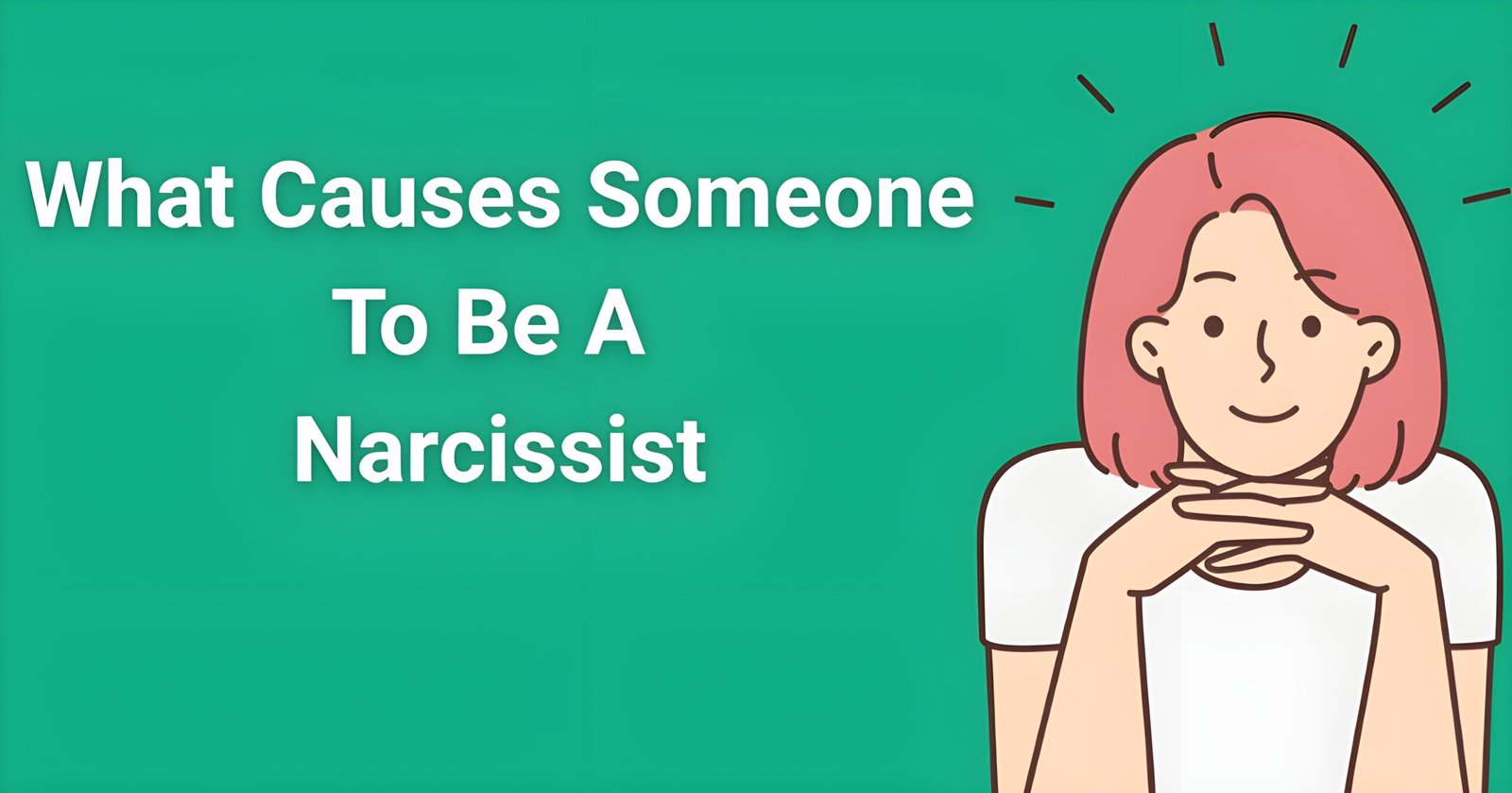What causes someone to be a narcissist: 12 root causes – this question haunts every survivor who has ever wondered how someone they loved could become so capable of manipulation, emotional abuse, and psychological cruelty. After working with thousands of survivors through NarcissismExposed.com as a Certified Narcissistic Abuse Specialist, I can tell you that understanding these root causes will either provide the validation you desperately need or shatter your remaining hope that your abuser’s behavior was somehow your fault.
- Understanding the Developmental Foundation: Why What Causes Someone to Be a Narcissist Matters
- What Causes Someone to Be a Narcissist: 12 Root Causes Revealed
- The Complex Interaction: How What Causes Someone to Be a Narcissist: 12 Root Causes Work Together
- The Validation Survivors Need: It Was Never About You
- Moving Forward: Using This Knowledge for Healing and Protection
- Key Takeaways: Understanding What Causes Someone to Be a Narcissist: 12 Root Causes
- Frequently Asked Questions
The devastating truth is that narcissistic personality disorder develops through a complex interplay of genetic, environmental, and developmental factors that typically begin in early childhood, long before their victims ever entered their lives. This means that the manipulation, abuse, and emotional cruelty you experienced was never about you – it was the inevitable result of deep-rooted psychological patterns established decades before you met them.
Understanding what causes someone to be a narcissist: 12 root causes isn’t about making excuses for abusive behavior or developing sympathy for your abuser. It’s about recognizing that their capacity for healthy relationships was damaged long before you knew them, validating that you couldn’t have loved them into wholeness, and understanding why traditional relationship strategies failed so completely.
This knowledge is powerful because it breaks the cycle of self-blame that keeps survivors trapped in confusion and guilt. When you understand the deep origins of narcissistic behavior, you can finally stop wondering what you did wrong and start focusing on your own healing and protection.
Understanding the Developmental Foundation: Why What Causes Someone to Be a Narcissist Matters
Before exploring the specific root causes of narcissistic personality development, it’s essential to understand why this knowledge is crucial for survivors and how narcissistic traits typically form during critical developmental periods.
Narcissistic personality disorder doesn’t develop overnight or as a response to adult relationships. Research from the American Journal of Psychiatry shows that the foundational patterns of narcissistic behavior are typically established during the first six years of life, when the brain is most plastic and vulnerable to environmental influences.
The development process involves disruptions in several key areas:
Attachment Formation: Healthy attachment between children and caregivers forms the foundation for all future relationships. When this process is disrupted through abuse, neglect, or inconsistent caregiving, children develop maladaptive strategies for getting their needs met.
Emotional Regulation: Children learn to manage emotions through co-regulation with stable caregivers. Without this foundation, they may develop manipulative strategies to manage their own and others’ emotional states.
Sense of Self: A healthy sense of self develops through consistent, attuned caregiving that helps children understand their worth doesn’t depend on performance or meeting others’ needs. Disruptions create either grandiose or shame-based self-concepts.
Empathy Development: The capacity for genuine empathy develops through experiencing empathy from caregivers. Children who don’t receive authentic emotional attunement struggle to develop this capacity for others.
According to research published in the Journal of Personality Disorders, these developmental disruptions create specific neurological changes that persist into adulthood, making genuine empathy and healthy relationships extremely difficult to achieve even with therapeutic intervention.
What Causes Someone to Be a Narcissist: 12 Root Causes Revealed
Understanding the comprehensive factors that contribute to narcissistic personality development helps survivors recognize the complexity of their abuser’s condition and the impossibility of loving someone into psychological health. These twelve root causes often occur in combination, creating the perfect storm for narcissistic personality formation.
Root Cause #1: Childhood Emotional Neglect and Abandonment
The most significant factor in what causes someone to be a narcissist: 12 root causes is early emotional neglect or abandonment by primary caregivers. When children’s emotional needs are consistently ignored, minimized, or met with hostility, they learn that their authentic selves are unacceptable and develop false personalities designed to earn attention and care.
This manifests as:
- Parents who are physically present but emotionally unavailable
- Caregivers who only respond to extreme behaviors or achievements
- Inconsistent emotional availability that creates anxiety and hypervigilance
- Messages that emotions are weakness or burdens to others
- Lack of emotional validation and attunement during critical developmental periods
The psychological impact includes:
- Development of grandiose false self to compensate for inner emptiness
- Inability to regulate emotions without external validation
- Deep shame about authentic needs and feelings
- Compulsive need to be special or superior to feel worthy of attention
- Difficulty forming genuine emotional connections due to fear of abandonment
How this creates narcissistic patterns: Children who experience emotional neglect learn that their true selves are unacceptable and develop elaborate personas designed to earn the love and attention they desperately need. This false self becomes so dominant that they lose touch with their authentic emotions and needs, creating the emotional emptiness characteristic of narcissistic personality disorder.
Root Cause #2: Excessive Praise Without Boundaries or Consequences
Another crucial factor in what causes someone to be a narcissist: 12 root causes involves children receiving excessive praise and admiration without appropriate boundaries or consequences for harmful behavior. This creates an inflated sense of self-importance and entitlement that persists into adulthood.
This includes:
- Parents who treat their children as extensions of their own ego
- Excessive praise for ordinary achievements or behaviors
- Lack of consequences for harmful or disrespectful behavior toward others
- Messages that the child is inherently superior to peers
- Protection from natural consequences of poor choices
The developmental impact:
- Belief that rules don’t apply to them
- Inability to handle criticism or failure appropriately
- Expectation that others exist to serve their needs
- Lack of empathy for people they consider inferior
- Difficulty tolerating frustration or delayed gratification
Long-term consequences: Children raised with excessive praise but no boundaries develop unrealistic expectations about their specialness and importance. They expect adult relationships to replicate the unconditional admiration they received as children, becoming manipulative and abusive when reality doesn’t meet these expectations.
Root Cause #3: Severe Childhood Trauma and Attachment Disruption
Significant trauma during early childhood represents another major factor in what causes someone to be a narcissist: 12 root causes, particularly when combined with disrupted attachment relationships. Trauma fundamentally alters brain development and creates survival strategies that persist into adulthood.
Traumatic experiences include:
- Physical, sexual, or emotional abuse from caregivers
- Witnessing domestic violence or family dysfunction
- Medical trauma or prolonged hospitalization during critical periods
- Loss of primary caregivers through death, abandonment, or separation
- Exposure to war, natural disasters, or community violence
Neurological impact:
- Hyperactive stress response systems that create chronic anxiety
- Underdeveloped prefrontal cortex affecting impulse control and empathy
- Disrupted attachment systems that impair relationship formation
- Altered reward processing that increases need for external validation
- Impaired emotional regulation requiring external management
Survival adaptations: Traumatized children often develop narcissistic traits as survival mechanisms, learning to manipulate their environment to feel safe and in control. The grandiosity and entitlement serve as psychological shields against overwhelming feelings of powerlessness and vulnerability.
Root Cause #4: Genetic Predisposition and Inherited Traits
Research indicates that genetic factors account for approximately 40-50% of the variance in what causes someone to be a narcissist: 12 root causes, suggesting significant heritability of personality traits associated with narcissistic behavior. While genetics alone don’t determine personality, they create vulnerabilities that environmental factors can trigger.
Genetic contributions include:
- Inherited temperament traits like aggression and emotional reactivity
- Neurological differences in empathy and reward processing centers
- Predisposition to anxiety and depression that may trigger compensatory grandiosity
- Inherited traits related to impulse control and emotional regulation
- Genetic variations affecting neurotransmitter function and social bonding
Gene-environment interactions: Children with genetic vulnerabilities are more likely to develop narcissistic traits when exposed to environmental stressors, trauma, or inadequate parenting. The genetic predisposition creates the foundation, while environmental factors determine whether narcissistic patterns actually develop.
Family pattern implications: Understanding genetic contributions helps explain why narcissistic traits often run in families and why children of narcissistic parents are at higher risk for developing similar patterns, even with adequate alternative caregiving.
Root Cause #5: Critical Brain Development Disruptions
Disruptions during critical periods of brain development represent another significant factor in what causes someone to be a narcissist: 12 root causes. The first three years of life are particularly crucial for developing neural pathways related to empathy, emotional regulation, and social connection.
Critical development periods include:
- First year: Basic trust and attachment formation
- Second year: Emotional regulation and self-soothing development
- Third year: Empathy and social awareness emergence
- Ages 3-6: Conscience development and moral reasoning
- Adolescence: Final prefrontal cortex maturation
Disruption factors:
- Prenatal exposure to substances, stress, or trauma
- Birth complications affecting brain oxygen supply
- Early illness, surgery, or medical procedures requiring separation
- Caregiver mental illness during critical bonding periods
- Environmental toxins or nutritional deficiencies affecting development
Long-term implications: When brain development is disrupted during these critical windows, the neural foundations for empathy, emotional regulation, and healthy relationships may be permanently altered, creating lifelong challenges in forming authentic connections with others.
Root Cause #6: Parental Narcissism and Learned Behavioral Patterns
Children of narcissistic parents represent a significant population in what causes someone to be a narcissist: 12 root causes because they learn manipulative and entitled behaviors through direct modeling and conditioning. Growing up with narcissistic caregivers teaches children that relationships are transactional and that love must be earned through performance.
Learned patterns include:
- Manipulation tactics for getting needs met
- Emotional regulation through controlling others
- Viewing relationships as competitions for resources and attention
- Using charm and deception to maintain favorable image
- Exploiting others’ vulnerabilities for personal advantage
Environmental conditioning:
- Rewarded for mimicking parent’s narcissistic behaviors
- Punished for showing authentic emotions or needs
- Taught that empathy is weakness and vulnerability is dangerous
- Conditioned to view others as either threats or sources of supply
- Trained to prioritize image management over authentic relationships
Intergenerational transmission: Children learn that the parent’s narcissistic strategies are effective for getting needs met and avoiding pain, unconsciously adopting these same patterns in their own relationships. The cycle continues because these children never learn healthy relationship skills or authentic emotional expression.
Root Cause #7: Cultural and Societal Influences on Narcissistic Development
Modern cultural factors contribute significantly to what causes someone to be a narcissist: 12 root causes, particularly in societies that emphasize individual achievement, competition, and material success over community connection and emotional wellbeing. Cultural narcissism can normalize and reward narcissistic traits.
Cultural contributors include:
- Social media culture promoting image over authenticity
- Competitive educational and economic systems rewarding ruthless behavior
- Celebrity culture that glorifies narcissistic traits and behaviors
- Consumerist messaging equating worth with material possessions
- Cultural devaluation of empathy, cooperation, and emotional intelligence
Societal reinforcement:
- Economic systems rewarding exploitation and manipulation
- Political systems modeling narcissistic leadership styles
- Media representations glorifying antisocial successful characters
- Educational systems emphasizing competition over collaboration
- Social structures that isolate individuals from community support
Impact on development: Children growing up in highly narcissistic cultures receive constant messaging that narcissistic traits are desirable and effective, while empathy and authenticity are portrayed as weaknesses that lead to exploitation by others.
Root Cause #8: Early Childhood Abuse and Power Dynamics
Direct abuse during formative years is a major factor in what causes someone to be a narcissist: 12 root causes because it teaches children that relationships are about power and control rather than mutual care and respect. Abused children often develop narcissistic traits as protection against further victimization.
Abuse patterns include:
- Physical violence that teaches might makes right
- Sexual abuse that violates boundaries and creates shame
- Emotional abuse that destroys self-esteem and authentic identity
- Psychological manipulation that distorts reality perception
- Spiritual abuse that uses religion to justify control and exploitation
Survival adaptations:
- Developing grandiosity to compensate for feelings of powerlessness
- Learning manipulation tactics to avoid further abuse
- Emotional numbing to survive overwhelming trauma
- Hypervigilance and control strategies to predict and prevent harm
- Identification with aggressor as survival mechanism
Power dynamics internalization: Children who experience abuse learn that relationships involve winners and losers, victims and perpetrators. They may unconsciously choose to become perpetrators rather than risk being victims again, developing narcissistic traits as protection against vulnerability.
Root Cause #9: Inconsistent and Unpredictable Parenting Patterns
Chaotic and inconsistent caregiving represents another crucial element in what causes someone to be a narcissist: 12 root causes because it prevents children from developing secure attachment and healthy emotional regulation. Unpredictable parenting creates anxiety that persists into adulthood.
Inconsistent patterns include:
- Alternating between excessive praise and harsh criticism
- Unpredictable emotional availability from caregivers
- Inconsistent rules and consequences that change based on parent’s mood
- Love and attention contingent on parent’s emotional state rather than child’s needs
- Mixed messages about the child’s worth and lovability
Developmental impact:
- Chronic anxiety and hypervigilance about others’ emotional states
- Difficulty trusting others or forming stable relationships
- Compulsive need to control environment to feel safe
- Emotional dysregulation requiring external management
- People-pleasing alternating with rebellious behavior
Adaptive strategies: Children from chaotic environments often develop narcissistic traits as attempts to create predictability and control. The grandiosity and manipulation serve as ways to manage their environment and others’ responses to reduce anxiety and emotional overwhelm.
Root Cause #10: Parentification and Inappropriate Responsibility
Parentification, where children are forced to take on adult responsibilities and emotional caregiving roles, is a significant factor in what causes someone to be a narcissist: 12 root causes. These children learn to manipulate others’ emotions and often develop inflated senses of their own importance and capabilities.
Parentification includes:
- Emotional caretaking for depressed, anxious, or unstable parents
- Taking responsibility for siblings’ physical and emotional needs
- Serving as confidant for parent’s adult problems and relationships
- Managing household responsibilities beyond age-appropriate levels
- Mediating conflicts between parents or family members
Psychological consequences:
- Premature ego development and inflated sense of capability
- Difficulty accepting help or recognizing personal limitations
- Expectation that others should appreciate their sacrifices
- Resentment about having to care for others while receiving little nurturing
- Inability to access their own vulnerability and authentic needs
Narcissistic adaptation: Parentified children often develop narcissistic traits because they learned to meet others’ needs while suppressing their own. They may become adults who expect constant gratitude and admiration for their caretaking while being unable to receive genuine care from others.
Root Cause #11: Perfectionist Family Systems and Conditional Love
Growing up in perfectionist family systems where love and acceptance are conditional on achievement represents another major factor in what causes someone to be a narcissist: 12 root causes. These environments teach children that their worth depends entirely on external validation and performance.
Perfectionist patterns include:
- Love and attention contingent on academic or athletic achievement
- Criticism and disappointment when performance doesn’t meet impossible standards
- Comparison to siblings or peers that creates chronic inadequacy feelings
- Image management taking priority over emotional authenticity and connection
- Punishment for mistakes, vulnerability, or human imperfection
Developmental consequences:
- All-or-nothing thinking about self-worth and success
- Inability to tolerate failure or criticism without rage or collapse
- Compulsive need to maintain perfect image at all costs
- Difficulty forming authentic relationships based on mutual acceptance
- Chronic fear of exposure as fundamentally flawed or inadequate
Narcissistic compensation: Children from perfectionist families often develop grandiose narcissistic traits to cope with underlying shame and inadequacy. The superiority complex serves as protection against the terror of not being good enough to deserve love.
Root Cause #12: Environmental Stressors and Socioeconomic Factors
Chronic environmental stress and socioeconomic instability represent the final major factor in what causes someone to be a narcissist: 12 root causes. Poverty, discrimination, and community violence can trigger narcissistic adaptations as survival mechanisms.
Environmental stressors include:
- Financial instability affecting family functioning and stress levels
- Discrimination based on race, ethnicity, religion, or socioeconomic status
- Community violence and lack of safety in neighborhood environment
- Frequent moves and disruptions to social connections and stability
- Limited access to mental health care and educational resources
Stress responses:
- Chronic activation of fight-or-flight responses affecting brain development
- Family stress creating emotional neglect even in well-intentioned families
- Competition for limited resources teaching scarcity mentality
- Survival focus preventing development of empathy and social connection
- Trauma responses that prioritize self-protection over relationship building
Adaptive narcissism: In highly stressful environments, narcissistic traits may develop as adaptive responses that help individuals survive and succeed. The grandiosity and manipulation can be effective strategies for navigating dangerous or competitive environments, but they become maladaptive in intimate relationships.
The Complex Interaction: How What Causes Someone to Be a Narcissist: 12 Root Causes Work Together
Understanding narcissistic personality development requires recognizing that these twelve root causes rarely occur in isolation. Most narcissistic individuals experienced multiple contributing factors that interacted and reinforced each other during critical developmental periods.
The Perfect Storm Scenario
The most severe narcissistic personality patterns typically develop when several root causes combine during vulnerable developmental periods. For example, a genetically vulnerable child who experiences emotional neglect, inconsistent parenting, and cultural pressure for achievement may develop particularly entrenched narcissistic traits.
Common combinations include:
- Genetic vulnerability + childhood trauma + parentification
- Emotional neglect + perfectionist family system + cultural narcissism
- Parental narcissism + inconsistent parenting + environmental stress
- Excessive praise + lack of boundaries + early trauma
Cumulative impact: Each additional risk factor increases the likelihood and severity of narcissistic personality development. Children who experience multiple risk factors simultaneously often develop the most resistant and harmful narcissistic patterns.
The Developmental Timeline
Understanding what causes someone to be a narcissist: 12 root causes requires recognizing that different factors have varying impacts depending on when they occur during development.
Critical periods include:
- Ages 0-2: Attachment formation and basic trust development
- Ages 3-5: Empathy emergence and early moral development
- Ages 6-12: Social skills and peer relationship formation
- Adolescence: Identity consolidation and final brain maturation
Timing effects: Early trauma and neglect typically have more severe and lasting impacts than later adverse experiences, though adolescent trauma can still significantly affect personality development, particularly when it reinforces earlier patterns.
The Validation Survivors Need: It Was Never About You
Understanding what causes someone to be a narcissist: 12 root causes provides crucial validation for survivors who have blamed themselves for their abuser’s behavior. The narcissistic personality patterns that caused you so much pain were established long before you entered their life, and nothing you could have done would have changed their fundamental capacity for healthy relationships.
Breaking the Cycle of Self-Blame
Survivors often torture themselves wondering what they did wrong or how they could have loved their abuser into wholeness. Understanding the deep roots of narcissistic behavior helps break this destructive pattern of self-blame.
Important recognitions:
- Their capacity for empathy was damaged before you met them
- Your love, support, and sacrifice couldn’t heal decades of developmental trauma
- The manipulation and abuse reflected their psychological limitations, not your inadequacy
- Their inability to change wasn’t due to your failure to love them properly
- Your emotional responses to their behavior were normal reactions to abnormal treatment
The Impossibility of Love-Based Healing
One of the most important insights from understanding what causes someone to be a narcissist: 12 root causes is recognizing that love alone cannot heal the complex developmental trauma that creates narcissistic personality patterns.
Why love isn’t enough:
- Neurological differences require specialized intervention beyond relationship support
- Defensive mechanisms actively resist the vulnerability required for healing
- Lack of empathy prevents them from understanding their impact on others
- Entitlement beliefs make them resistant to accountability and change
- Deep shame creates powerful resistance to authentic self-examination
This understanding helps survivors:
- Release guilt about not being able to save their abuser
- Recognize that leaving wasn’t giving up but protecting themselves
- Understand that their love and support were never the problem
- Focus energy on their own healing rather than trying to fix someone else
- Accept that some people are not capable of healthy relationships regardless of how much they’re loved
Moving Forward: Using This Knowledge for Healing and Protection
Understanding what causes someone to be a narcissist: 12 root causes isn’t about developing sympathy for your abuser or excusing their behavior. Instead, this knowledge serves as a powerful tool for your own healing and future protection.
Healing Applications
This understanding supports your healing process by:
- Validating that the abuse wasn’t your fault or responsibility
- Explaining why traditional relationship strategies failed so completely
- Helping you recognize that you couldn’t have loved them into wholeness
- Providing context for their inability to change despite promises
- Supporting your decision to prioritize your own wellbeing and safety
Protection Strategies
Knowledge of narcissistic development helps you recognize red flags in future relationships:
- People who seem to have had severely disrupted childhoods
- Individuals who show no genuine empathy or emotional reciprocity
- Partners who blame all relationship problems on others
- People who show grandiose thinking or entitlement attitudes
- Individuals who have no close, long-term friendships or family relationships
Breaking Intergenerational Patterns
Understanding these root causes also helps prevent narcissistic patterns from continuing into future generations through your own parenting or relationships with children.
Prevention strategies include:
- Providing consistent, attuned emotional caregiving
- Setting appropriate boundaries while maintaining warmth and connection
- Teaching emotional regulation and empathy through modeling
- Avoiding both emotional neglect and excessive praise without boundaries
- Seeking therapeutic support to heal your own childhood wounds
- Creating stable, predictable environments that promote secure attachment
Key Takeaways: Understanding What Causes Someone to Be a Narcissist: 12 Root Causes
Understanding the comprehensive factors that contribute to narcissistic personality development provides crucial validation for survivors while explaining why their relationships were so difficult and ultimately impossible to heal through love alone.
Remember these essential insights:
- Narcissistic personality patterns develop through complex combinations of genetic, environmental, and developmental factors during critical childhood periods
- The twelve root causes include emotional neglect, excessive praise, trauma, genetics, brain development issues, parental modeling, cultural factors, abuse, inconsistent parenting, parentification, perfectionism, and environmental stress
- These factors typically work together rather than in isolation to create the perfect storm for narcissistic personality development
- The patterns were established long before you entered their life and couldn’t be healed through your love, support, or sacrifice
- Understanding these causes validates that the abuse wasn’t your fault and explains why traditional relationship strategies failed
- This knowledge serves your healing and protection rather than creating sympathy for your abuser
The path forward involves:
- Using this understanding to release self-blame and guilt about the relationship failure
- Recognizing that you couldn’t have saved or healed someone with such deep developmental trauma
- Applying this knowledge to recognize red flags in future relationships
- Focusing your energy on your own healing rather than trying to understand or fix your abuser
- Breaking intergenerational patterns through conscious parenting and relationship choices
- Seeking specialized support for healing from narcissistic abuse trauma
Understanding what causes someone to be a narcissist: 12 root causes doesn’t minimize the harm they caused or excuse their abusive behavior. When survivors search for this information, they’re seeking validation that the relationship failure wasn’t their fault and understanding of why someone they loved could be so emotionally destructive.
This knowledge provides the clarity needed to stop blaming yourself, recognize that love alone cannot heal severe personality disorders, and focus on your own recovery and protection. The person who hurt you was shaped by forces far beyond your influence or control, and your healing doesn’t require understanding or forgiving them – it requires understanding and caring for yourself.
Moving forward means accepting what you cannot change while taking full responsibility for your own healing and growth. Their inability to love you healthily was never a reflection of your worthiness – it was a reflection of their profound psychological limitations that existed long before you met them and will likely persist long after you’ve healed and moved on to healthier relationships.
Frequently Asked Questions
Does understanding what caused their narcissism mean I should feel sorry for them?
Understanding the developmental roots of narcissistic behavior is about your healing and protection, not about generating sympathy for your abuser. While their childhood experiences may explain their behavior, they don’t excuse the harm they caused you. Many people experience difficult childhoods without becoming abusive adults. Your abuser made choices about how to treat you, and those choices were harmful regardless of their origins. Focus on using this knowledge to validate your own experience and protect yourself rather than developing sympathy that might keep you trapped in harmful dynamics.
Can someone overcome these root causes with enough therapy and personal work?
While therapy can help some individuals with narcissistic traits develop better behavioral control, the deep neurological and psychological patterns established during critical developmental periods are extremely resistant to change. The research shows that meaningful transformation is rare and often impossible, particularly for those with severe narcissistic personality disorder. Even when some improvement occurs, it typically involves better behavioral management rather than the fundamental capacity for empathy and genuine love that healthy relationships require. Don’t base your life decisions on their potential for change.
If narcissism is caused by childhood trauma, doesn’t that make them victims too?
While narcissistic individuals may have experienced childhood trauma, this doesn’t erase their responsibility for the harm they cause others as adults. Many trauma survivors choose healing paths that don’t involve hurting others. The victim-perpetrator cycle is complex, but being a victim of past abuse doesn’t justify becoming an abuser yourself. Your responsibility is to your own healing and protection, not to understanding or excusing your abuser’s behavior. Recognize that you can acknowledge their possible trauma history while still maintaining boundaries and prioritizing your own wellbeing.
How can I tell if someone’s difficult childhood means they’ll become narcissistic?
Not everyone with a difficult childhood develops narcissistic personality disorder. The key factors are whether the person has developed genuine empathy, accountability, and the ability to maintain healthy relationships. Look for their capacity to genuinely care about others’ wellbeing, take responsibility for their mistakes, and show consistent emotional reciprocity. People who’ve healed from childhood trauma typically show increased empathy and commitment to not harming others. Those who use their trauma history to justify harmful behavior or avoid accountability are showing concerning patterns regardless of their past experiences.
Should I try to help someone I suspect has narcissistic traits due to their childhood?
Attempting to heal or fix someone with narcissistic traits is typically ineffective and often harmful to your own wellbeing. Their healing is their responsibility and requires specialized professional intervention that you cannot provide. Focus on protecting yourself by maintaining strong boundaries and avoiding the caretaker role. If someone shows genuine motivation to change and is actively engaged in appropriate therapy, you can be supportive from a safe distance, but don’t sacrifice your own mental health trying to save someone who may not be capable of the change you hope to see.
How do I prevent passing these patterns on to my own children?
Breaking intergenerational patterns requires conscious effort and often professional support. Focus on providing consistent, attuned emotional caregiving while setting appropriate boundaries. Seek therapy to heal your own childhood wounds so they don’t unconsciously influence your parenting. Learn about child development and secure attachment principles. Avoid both emotional neglect and excessive praise without boundaries. Teach emotional regulation through modeling and support. Create stable, predictable environments that promote security. Remember that awareness of these patterns gives you power to choose different approaches than what you may have experienced.
What if I recognize some of these root causes in my own childhood?
Recognizing these patterns in your own background doesn’t mean you’re destined to become narcissistic or that you currently display these traits. Many people who experienced these risk factors develop heightened empathy and commitment to healthy relationships instead. The key difference is self-awareness, willingness to take accountability, and commitment to healing. If you’re concerned about your own patterns, seek therapy with someone who specializes in childhood trauma and attachment issues. The fact that you’re asking this question suggests you have the self-awareness and motivation needed for healthy growth and relationships.






